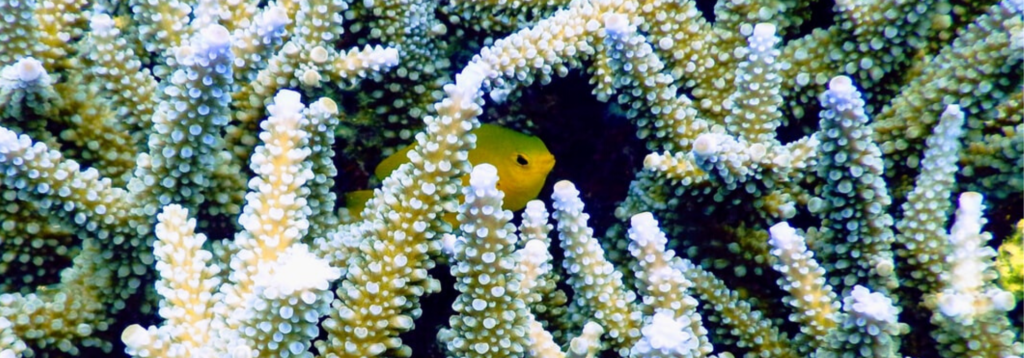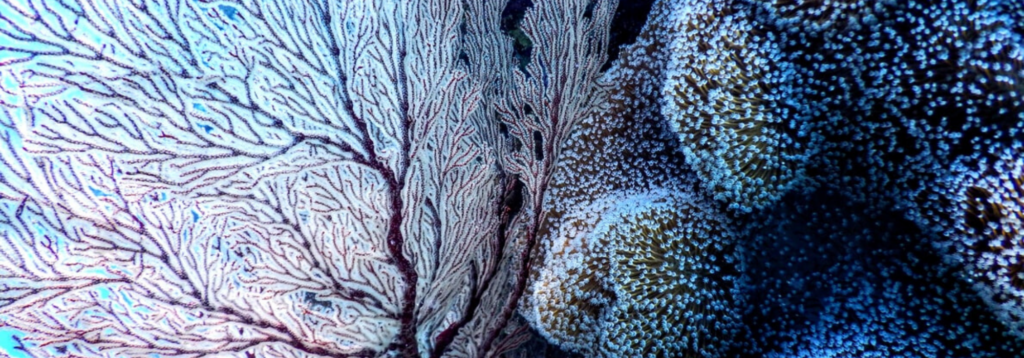AQUATIC ECOSYSTEM
CORAL REEFS
Coral reefs are one of the most diverse ecosystems on our planet, yet they cover less than 1% of the Earth’s surface. This is because coral reefs require warm, shallow waters to survive, so they are mostly found on coastlines. A major component of coral reefs is the coral animals that depend on zooxanthellae, a small single-celled algae that lives within the tissue of corals and photosynthesizes. Corals and zooxanthellae have a symbiotic relationship, with zooxanthellae providing corals with food and corals donating nutrients to the zooxanthellae.
Most corals grow incredibly slowly, expanding less than one inch per year. As a whole, coral reefs exist because the rate of death of corals is lower than their rate of growth. However, coral reefs are now rapidly declining due to increasing temperatures, disease, pollution, frequent storms and ocean acidification.

Why do they matter?
Coral reefs are the most diverse marine ecosystem, with 25% of all marine species relying on coral reefs for food and shelter. They also offer shoreline protection and provide fisheries with an abundance of different species of fish. Coral reefs directly support over 500 million people, and without them, our world would be vastly different.
The drastic decline of coral reefs indicates that climate change is killing our planet’s most vital ecosystems.
Coral reefs are a major draw for ecotourism. The annual value of coral reefs is estimated to be between $30 billion and $172 billion. However, coral reefs are an extremely sensitive ecosystem that are currently battling the harsh effects of climate change. Over 50% of the Great Barrier Reef, the largest coral reef system in the world, was destroyed in 2016-2017 alone from changing oceanic conditions.

Will climate change affect coral reefs? Yes.
There are a multitude of climate change threats to coral reefs. With increasing temperatures and acidity in oceans, corals are subject to bleaching, a process where they expel their zooxanthellae resulting in the corals turning a bright white. Prolonged bleaching leads to coral death, and eventual decay and degradation. Coral reefs are also suffering from overfishing and runoff from land-use practices. It is imperative that we save this delicate ecosystem from total collapse, otherwise we will face the social, economic and health consequences.